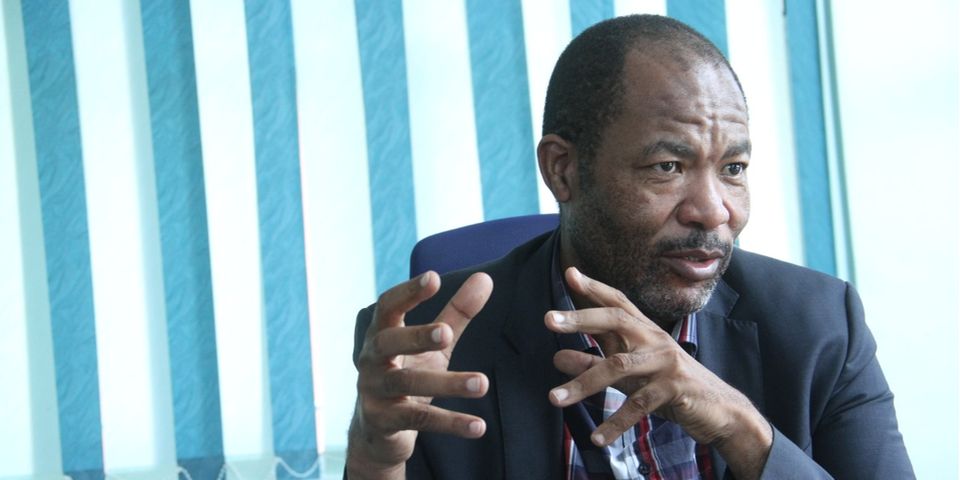Share this
Dr Percival Selepe, Bliss Healthcare’s Chief Medical Supervisor. The health facility is capitalising on the concept of telemedicine.
Doctor at your doorstep: How telemedicine is taking root in Kenya
More hospitals in Kenya, including walk-in clinics, have found a niche in telemedicine for patient consultations.
A number of these health facilities have been cancelling hospital visits with more people staying away from hospitals since the first case of coronavirus was reported in the country in March.
One such firm capitalising on the concept’s growing popularity is Bliss Healthcare.
The facility, which has a presence in 45 counties with more than 80 clinics countrywide, said the pandemic has given health providers new opportunities.
The facility is also involved in delivery of medicines to homes and hospitals, according to Chief Medical Supervisor, Dr Percival Selepe.
Their newly-launched package, dubbed Bliss@Home service,. is picking up fast, especially after a spike in new infections in the country that has further reduced the number of Kenyans making hospital visits.
“The novel coronavirus requires novel ways of business thinking to survive, and the healthcare sector is no different,” Dr Selepe said during an interview with the Nation.
“Travel has largely been restricted as part of efforts to tackle Covid-19, which means physical hospital visits are not encouraged, unless in severe cases. But this does not mean that we should forget about our health,” he said.
According to Dr Selepe, telemedicine enables patients to continue seeking services needed to maintain their health without having to physically go to a hospital.
The pioneering telemedicine product will see healthcare providers attend to patients at their doorstep upon request.
”Bliss@Home” is aimed at ensuring continuity of care for all patients while minimising the frequency of their interaction with health care settings during the Covid-19 pandemic.
Deliver services
Dr Selepe said the company has treated more than 10,000 patients at home over the past five months, many with chronic conditions, including Covid-19 patients.
He said that from this experiment, they are now ready to move into their ”Doctor at your Doorstep” service.
“The same way you order a pizza and it is delivered at your doorstep is the same way ”Bliss@Home” will deliver services at your doorstep by December,” he said.
“We have the online infrastructure for consultation and drug delivery, and we have ordered a fleet of medical motorcycles so that not even Nairobi’s notorious traffic will hinder our medics from reaching our patients who need our services at home.”
Dr Selepe, who has worked in the health industry in South Africa and Ireland, believes that in the coming decade, telemedicine will become as normalised as mobile telephony in the 2000s.
He termed it the future of healthcare.

“Digital technology is the key to transformation of every industry and, for us, the tools of telemedicine mean we can turn unsustainable healthcare systems into sustainable ones, equalise the relationship between medical professionals and patients, as well as provide cheaper, faster and more effective solutions for the diseases that plague Kenyans,” Dr Selepe said.
Globally, experts expect some telemedicine restrictions will return, including fees that are now waived.
Also, some doctor will be reluctant to work via telemedicine until they know exactly how they get paid, said John League, a senior consultant with Advisory Board, which researches on health care strategy.
According to Arielle Trzcinski, a senior analyst with Forrester, which researches on insurers and hospitals among other clients, insurers will ultimately cover more remote care because telemedicine can help keep people out of expensive hospitals and emergency rooms.
Online consultation
Doctors have also predicted that telemedicine will play a bigger role for people with chronic conditions.
Dr Selepe said that through ”Bliss@Home”, doctors and nurses will be offering online consultation on all outpatient services for 24 hours.
Through this arrangement, patients will use mobile money to pay for services and medicines which will be delivered to their addresses via motorbikes.
At the moment, the firm has their capitation patients who are insured and they have included this service without any additional cost. Unfortunately, patients insured by different firms will have to make cash payments for now.
The move is part of the wider acceptance of telemedicine by medical insurance companies in Kenya, most of which agree to pay for costs associated with over-the-internet consultations and diagnosis.
“The doctor’s consultation is only Sh900 and then the patient will pay for the services rendered,” he said.
Growth of telemedicine in Kenya has been aided by a high internet penetration.
Communications Authority of Kenya data shows there are 45.4 million subscribers of wireless internet, half of them being active users. Kenya has a population of 47 million, according to the 2019 census.
The Economic Survey for 2019 notes that high internet use helped increase the growth of the information communication sector by 11.4 per cent in 2018.
-Nation.co.ke



















